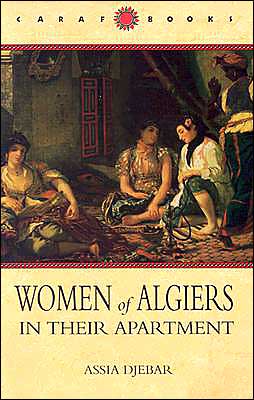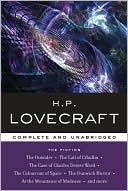Women of Algiers in Their Apartment (Caraf Books Series)
The cloth edition of Assia Djebar's Women of Algiers in Their Apartment, her first work to be published in English, was named by the American Literary Translators Association as an ALTA Outstanding Translation of the Year. Now available in paperback, this collection of three long stories, three short ones, and a theoretical postface by one of North Africa's leading writers depicts the plight of urban Algerian women who have thrown off the shackles of colonialism only to face a postcolonial...
Search in google:
The cloth edition of Assia Djebar's Women of Algiers in Their Apartment, her first work to be published in English, was named by the American Literary Translators Association as an ALTA Outstanding Translation of the Year. Now available in paperback, this collection of three long stories, three short ones, and a theoretical postface by one of North Africa's leading writers depicts the plight of urban Algerian women who have thrown off the shackles of colonialism only to face a postcolonial regime that denies and subjugates them even as it celebrates the liberation of men. Denounced in Algeria for its political criticism, Djebar's book quickly sold out its first printing of 15,000 copies in France and was hugely popular in Italy. Her stylistically innovative, lyrical stories address the cloistering of women, the implications of reticence, the connection of language to oppression, and the impact of war on both women and men. The Afterword by Clarisse Zimra includes an illuminating interview with Djebar.Publishers WeeklyLike the 19th-century Delacroix paintings of harem women from which it takes its title, this collection of six stories and an essay--published in 1980 in French--depicts moments in the lives of Algerian women. More than a century after Delacroix, and three decades after Algeria won its political independence from France, these Muslim women are still cultural prisoners. In the long title story, Sarah is only one of many characters straddling past and present: scarred from years of torture and prison, now married (to a man she chose for herself) and making a documentary about Algiers, she still goes to the Turkish baths and participates in the old rituals. Like her creator, she can ``see only one single way to unblock everything: talk, talk without stopping . . . '' The author of seven novels and the scripts for two films, Djebar records the talk: ``Fragmented, remembered, reconstituted conversations . . . Fictitious accounts . . . uttered from lips beneath a mask.'' Even in translation the prose can be vividly pictorial as well as poetic, but it also tends to be opaque, and--aside from those of one or two shorter pieces--the story lines are hard to follow. In an essay and an interview with Djebar, Zimra provides biographical information and also conveys Djebar's intense personal voice. (Nov.)
Overture1TodayWomen of Algiers in Their Apartment5The Woman Who Weeps53YesterdayThere Is No Exile61The Dead Speak75Day of Ramadan119Nostalgia of the Horde123PostfaceForbidden Gaze, Severed Sound133Notes153Glossary157Afterword159
\ ChoiceA vivid and poignant picture of what goes on behind the veils imposed by Algeria's Islamic society.\ \ \ \ \ \ Voice Literary SupplementAnyone into postcolonial fiction won't find better alternatives, even on a sunny day, than reading Djebar.\ \ \ \ Publishers Weekly\ - Publisher's Weekly\ Like the 19th-century Delacroix paintings of harem women from which it takes its title, this collection of six stories and an essay--published in 1980 in French--depicts moments in the lives of Algerian women. More than a century after Delacroix, and three decades after Algeria won its political independence from France, these Muslim women are still cultural prisoners. In the long title story, Sarah is only one of many characters straddling past and present: scarred from years of torture and prison, now married (to a man she chose for herself) and making a documentary about Algiers, she still goes to the Turkish baths and participates in the old rituals. Like her creator, she can ``see only one single way to unblock everything: talk, talk without stopping . . . '' The author of seven novels and the scripts for two films, Djebar records the talk: ``Fragmented, remembered, reconstituted conversations . . . Fictitious accounts . . . uttered from lips beneath a mask.'' Even in translation the prose can be vividly pictorial as well as poetic, but it also tends to be opaque, and--aside from those of one or two shorter pieces--the story lines are hard to follow. In an essay and an interview with Djebar, Zimra provides biographical information and also conveys Djebar's intense personal voice. (Nov.)\ \ \ \ \ Library JournalThe subjects of the title--after the painting of the same name by Delacroix depicting a 19th-century Algerian harem scene--have witnessed little change in their status during the century separating the two works. The post-colonial culture and political order have alienated women and perpetuated the male-dominated society in spite of the active role Algerian women played during the struggle for independence. Stories like ``There Is No Exile'' and ``The Dead Speak'' reflect how women of Algiers and elsewhere in Muslim countries have been taken in. Though denounced in Algeria for some time because of its criticism of the social and political establishment, this collection, written in French between 1959 and 1978, has had great success in France and Italy. Recommended for most libraries.-- Ali Houissa, Cornell Univ., Ithaca, N.Y.\ \ \ \ \ BooknewsOriginally published in French in 1980, and here translated for the first time into English (by Marjolijn de Jager), this collection of short fiction by one of the leading writers of North Africa raises issues surrounding the passage from colonial to postcolonial culture--national literature, cultural authenticity, and the impact of war on both men and women. Annotation c. Book News, Inc., Portland, OR (booknews.com)\ \








